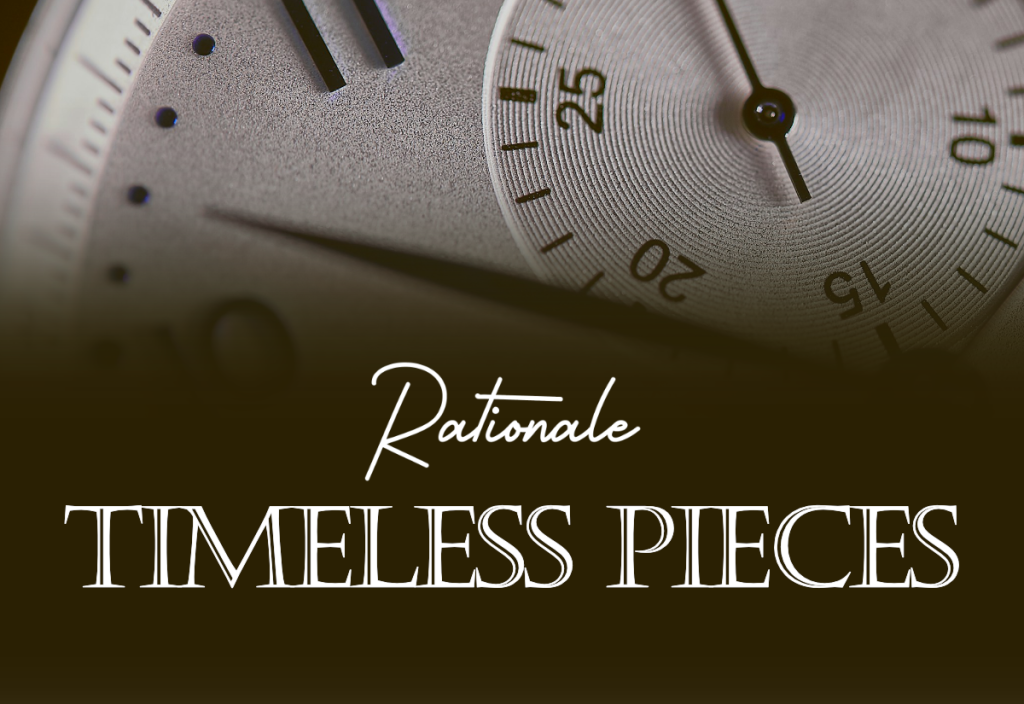Most readers would doubtless recognise the importance of being sceptical about the information, arguments, and ideas that we encounter, be it dietary advice, political opinions, science news articles, or whatever else. There are, however, different levels of scepticism, corresponding to the varying degrees of sophistication we can attain in the manner in which we respond to new ideas or arguments.
In this piece, I wish to outline a brief topology of these different levels of scepticism. I do not pretend to offer any sort of definitive classification. Nor do I claim that these levels are in any way based upon empirical psychological research. Their purpose rather is to serve as a conceptual tool to help us think about the ways in which we can improve our own thinking, and work to eliminate residual biases and blind spots that hamper our efforts to form beliefs that are best justified by strong argument and quality evidence.
The hierarchy that I shall outline has four levels, ranging from least sceptical at level 0 to most sceptical at level 3. I want to emphasise that the purpose of these levels is not to create a ranking of particular people as better or worse sceptics, as most people operate at multiple different levels depending on the circumstance and the topic in question.
The purpose is to rank particular types of thinking so that we may better recognise when we are thinking in a better or worse mode of scepticism.
I will begin my discussion at the bottom of the hierarchy, level 0. When we think at this level, we do not think particularly critically or sceptically about much of anything. Though we may have opinions about various matters of political, ethical, or philosophical import, when operating at level 0 we are typically unable to clearly articulate these views to others, or explain why we hold them.
Most such views are typically informed primarily by our upbringing, socialisation, and the attitudes of the people around them as they go about their lives. Many people who operate at this level have little to no ability to critically analyse evidence or analyse an abstract logical argument, having never been taught such skills or found it necessary to learn them.
Even those who do have such skills, however, can sometimes be remarkably compartmentalised in the manner in which they apply them, for example being able to hold forth a detailed analytical argument about topic A, but when discussing topic B doing little more than spouting catch-phrases that resonate with them.
When we operate at level 0, we tend to think that our viewpoint is ‘obvious’ and react with surprise when we find that others think differently, or that any sensible person can hold a different view.
It is likely that the majority of humanity operates at level 0 most of the time, as this is the type of thinking that comes most naturally and easily to most humans. That is, we typically form beliefs about the world not on the basis of careful examination of evidence, logical analysis, or in-depth comparison of alternative perspectives, but unconsciously and reflexively as we go about our lives, drawing largely upon what we know and are familiar with.
I do not want to claim that this is inappropriate in all contexts, as certainly we cannot always subject everything to detailed critical analysis. However, I do think that making a habit of thinking in this way is liable to lead us into error and confusion about a great many of our beliefs. Scepticism, logic, and science are valuable tools, and neglecting these tools leaves us intellectually impoverished and prone to biased and mistaken reasoning.
This leads me on to the next level of the scepticism hierarchy, level 1. When operating at this level, we are able to articulate clear opinions on a variety of subjects, martialling various arguments and evidence in favour of our views. We recognise the distinctiveness of different viewpoints and are able to employ the tools of scepticism and rationality to make arguments for what we regard as the correct view.
Scepticism, logic, and science are valuable tools, and neglecting these tools leaves us intellectually impoverished and prone to biased and mistaken reasoning.
However, when thinking at this level we also tend to identify strongly with one particular perspective, be it religious, political, scientific, or whatever else, and employ these sceptical tools selectively against arguments or information coming from the opposing ‘side’. We are able to spot logical fallacies, faulty reasoning, and inadequate evidence in the arguments of our ideological opponents, but are much less able to apply the same skills to arguments made by those of their own ideological persuasion.
When operating at level 1, we tend to respond to new claims by ‘pattern matching’ how the claim is framed and who is making it, and on that basis classify it as ‘for’ or ‘against’ our side. We thus do not judge arguments fairly on their own merits, but subject them to an initial, largely unconscious ‘screening process’, whereby if an argument ‘sounds like’ the sort of thing someone we disagree with would say, then we subject it to closer sceptical examination.
On the other hand, if it sounds like the sort of thing somebody who agrees with us would say, then it typically avoids any in-depth examination.
This sort of self-serving, pro in-group bias comes very naturally to humans, and thus is very difficult to overcome. It is also very difficult to notice in ourselves, because when operating at level 1 we typically are only conscious of the times when we are being sceptical and critical, not the times when we aren’t.
To us, it feels like we take arguments only on their merit, when in reality we are very selective about how our scepticism is applied and make little effort to subject views that accord with our beliefs or biases to the same rigorous critical examination that we apply to those that do not.
When operating at level 1 we are also liable to be misled by framing effects, slogans, buzzwords, and other irrelevancies relating not to the substance of an argument but to how it is packaged.
Selective scepticism of this sort is very common to those heavily involved in some sort of social movement or organisation, and is not always bad because it can save us time – after all, we can’t critically examine every single claim we come across. At the same time, it can become all too easy to become accustomed to operating at this level, and in doing so we fail to make proper or full use of the tools of rationality and scepticism.
When operating at the next level up in the hierarchy, level 2, we are able to apply critical thinking skills and sceptical analysis consistently and fairly both to arguments that we find agreeable and those that we find disagreeable. We allow the arguments and evidence to be persuasive in their own right, with minimal influence based on who has made them, or how they have been formulated. We consciously recognise our tendencies to favour ‘our side’ over the ‘other side’. We make efforts to circumvent this by deliberately taking time to critique arguments made by those who agree with us, and likewise by finding the strongest, most able defenders of ideas we disagree with. This, of course, is not easy to do, and requires careful attention and genuine effort to fairly engage with different perspectives and ideas.
There is, however, one significant failing that we still commonly experience when operating at level 2. Namely, we instinctively and reflexively retain an unreasonable overconfidence in our own reasoning abilities. We tend to believe that our perspectives or conclusions on some issue are the ‘right’ ones, and everyone else has got it ‘wrong’.
Taken to extremes, this type of thinking can lead to habitual contrarianism and even conspiratorial thinking. In such cases, we may think that both sides of some major dispute have it wrong, and we are the ‘lone genius’ able to see the correct answer.
While most people do not reach such extremes, what those operating at level 2 have in common is their inability or unwillingness to apply the same sceptical attitude and critical examination to their own thought processes that they do to the arguments of others. We thus do not properly appreciate the many limitations of memory, rationality, and knowledge that we ourselves are subject to, and which hamper our efforts to draw correct conclusions. We are sceptical of everyone else, but not sufficiently sceptical of ourselves, of our own biases and limitations.
The highest level of my hierarchy is level 3, and it is the level I believe we should all aspire to use as regularly as possible. When operating at level 3, we properly apply scepticism and critical analysis not only to everyone else, but also to ourselves and our own beliefs, preconceptions, and thought processes. We are often hesitant to attach strong credence to the conclusions we reach, because we know that our rationality is grossly imperfect and our knowledge and perspectives sorely limited. This of course should not lead us to radical scepticism or keep us from forming opinions about anything, but it should temper our confidence considerably and keep us from becoming dogmatically attached to our conclusions and perspectives.
In level 3, we are also much more self-critical, actively setting out to uncover our own biases and doing our best to compensate for them, and not just criticising the biases and errors of others.
Likewise, we actively seek out the viewpoints of other informed persons to critique our opinions and point out our cognitive ‘blind spots’, helping us to apply scepticism to our own thought processes and reasoning.
Level 3 is often an uncomfortable state to operate in, for it robs us of the overconfidence in our beliefs that is reassuring to most people, and also requires a degree of active self-criticism which is unnatural and effortful to maintain. We also must also make an effort to find the right balance between appropriate self-criticism and scepticism on the one hand, and paralysing self-doubt, apathy, or total mistrust of reason on the other.
Operating at level 3 is neither easy nor natural, but I do believe it is the highest form of ‘true scepticism’, and the ideal to which we should all aspire. Operating at this level may not always be possible, but nevertheless is worth striving for since it allows us to take the fullest advantage of the tools afforded by logic, rationality, and scepticism, thereby providing us maximum chances for ultimately forming accurate beliefs free from error, bias, and distortion.
This article was originally published on the author’s blog. It has been republished with his permission.
Photo by Tim Trad on Unsplash.














